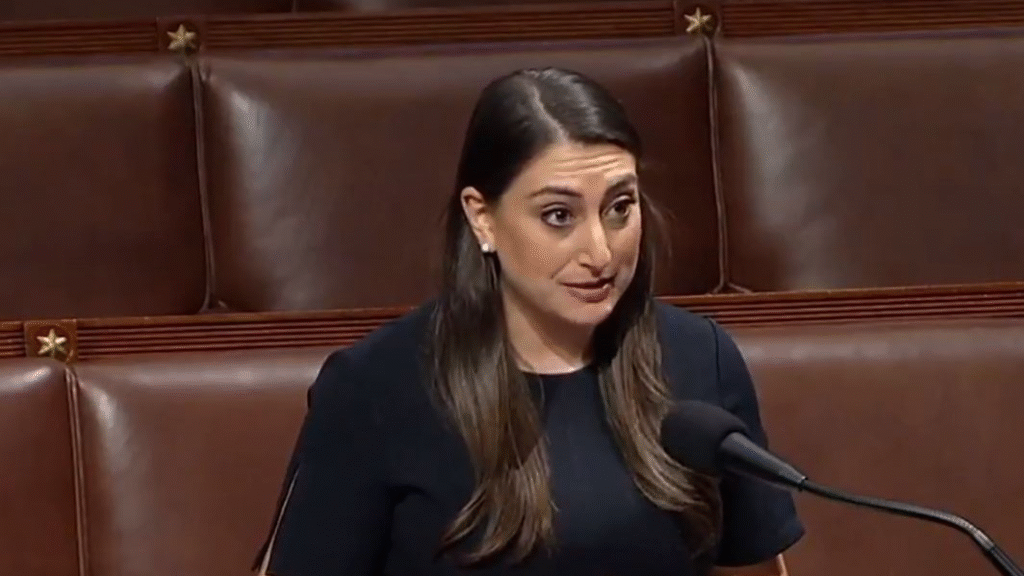Washington, D.C., May 12, 2025 — Congresswoman Sara Jacobs (D-CA) has reignited her push to dismantle the Department of Government Efficiency (DOGE), led by Elon Musk and Vivek Ramaswamy, with the introduction of the DELETE DOGE Act. The bill, first proposed on April 3, aims to completely defund and halt DOGE’s operations, a move Jacobs and her supporters hail as a vital stand against what they call “radical corruption” in the Trump administration. The announcement, gaining traction on social media, has sparked renewed debate over DOGE’s controversial cost-cutting measures.

The DELETE DOGE Act, officially H.R. 2601, seeks to prohibit federal funds from being used for DOGE’s activities, rescind any unobligated funds, and block future expenditures or transfers for DOGE-related projects or personnel. Jacobs initially introduced the legislation in April, arguing that DOGE’s aggressive cuts have harmed essential government programs while benefiting Musk’s business interests. “Elon Musk’s DOGE is cutting the programs that keep people alive to fund tax cuts for billionaires,” Jacobs wrote on X on April 7, noting that Musk’s companies have retained $38 billion in federal contracts untouched by DOGE’s austerity measures.
DOGE, established by President Donald Trump in January 2025, has been tasked with slashing federal spending and rooting out inefficiencies. However, its actions have drawn fierce criticism. Jacobs’ office has highlighted several missteps, including the firing and rehiring of employees managing nuclear weapons, the accidental termination of an Ebola prevention initiative, and the dismissal of staff operating the Department of Veterans Affairs’ suicide crisis hotline. These cuts, Jacobs argued on MSNBC in April, are “not about government efficiency” but about “gutting programs” to fund tax breaks for the wealthy.
The renewed push for the DELETE DOGE Act has resonated with many Americans frustrated by DOGE’s sweeping layoffs—tens of thousands of federal workers have been fired—and its broader impact on social programs. On X, supporters have praised Jacobs for “standing up for the American people” and “giving all of us a voice.” One post celebrated her efforts to combat “radical corruption,” urging Congress to pass the bill. However, the legislation faces an uphill battle in a Republican-controlled Congress, where DOGE’s mission aligns with Trump’s “America First” agenda.
Critics of the bill argue that DOGE has exposed real inefficiencies, such as Musk’s recent claim of uncovering 100,000 federal workers committing unemployment fraud—a claim that remains unverified and has been met with skepticism due to past exaggerations by DOGE. Supporters of Musk also point to savings of nearly $200 billion in Trump’s first 100 days, though these figures are contested and lack independent verification. The tension underscores a broader ideological clash: while Jacobs and her allies see DOGE as a reckless attack on government services, its defenders view it as a necessary shake-up of a bloated bureaucracy.
Jacobs has called for bipartisan support, with a spokesperson telling Newsweek in April that her team is working to build consensus “across the aisle,” particularly as DOGE targets programs like SNAP, Social Security, and veterans’ services. Yet, with Republicans holding a majority, the bill’s passage seems unlikely without significant pressure. The controversy also highlights Musk’s polarizing role in the administration—his influence has grown, but so has the scrutiny of his dual role as a government adviser and a beneficiary of federal contracts.
The DELETE DOGE Act represents a critical challenge to the Trump administration’s vision of government efficiency. While Jacobs’ supporters see it as a necessary check on power, its success hinges on shifting political winds and public pressure. For now, the fight over DOGE’s future—and Musk’s role in shaping it—remains a contentious battleground in Washington.
Leave a Reply